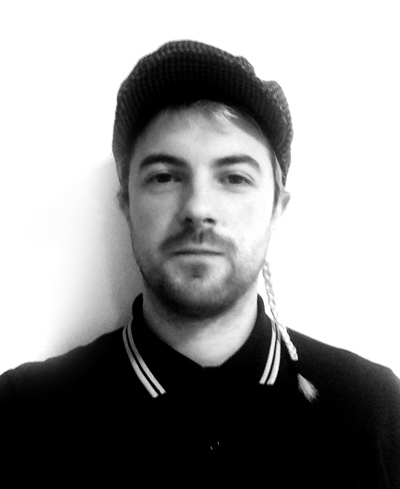Dr Ben O Ceallaigh BA, MA, PhD

Lecturer in Celtic Studies
Department of Welsh and Celtic Studies
Contact Details
- Email: beo15@aber.ac.uk
- Office: 0.40, Parry - Williams Building
- Phone: +44 (0) 1970 621816
- Personal Website: https://gaeiglenalachan.wordpress.com/
- Google Scholar: https://scholar.google.co.uk/citations?user=VqXLp9gAAAAJ
- Research Portal Profile
- Personal Pronouns: he/him
Profile
I grew up in the west of Ireland and did my undergraduate degree in Politics, Sociology and Philosophy at the University of Galway. After spending several years living in an Irish-speaking ("Gaeltacht") community I did an MA in language revitalisation in Acadamh na hOllscolaíochta Gaeilge, the division of the University of Galway which teaches through the medium of Irish. Following this, I received a scholarship to do a PhD in the University of Edinburgh's Department of Celtic Studies. In 2021 I was awarded the Joshua A. Fishman Award for my thesis, a triennial accolade which recognises "an outstanding dissertation that pushes intellectual boundaries and offers innovative, forward-looking perspectives in the sociology of language". A book based on this PhD was published in 2022.
In addition to my work within academia I also have a wide range of other experience both as an activist and professional in the field of language revitalisation in Ireland, Scotland and Wales.
Hapus i siarad Cymraeg / Gaeilge agus fáilte / Fàilte air cho-fhreagartas sa Ghàidhlig / Looayr Gaelg rhoom / Ankaŭ mi ĝojegas praktiki Esperanton!
Teaching
Module Coordinator
- IR10620 - Introduction to Modern Irish Language I
- IRM2220 - Introduction to Modern Irish Language II
- GC33520 - Gwyddeleg Modern (iaith a llen) 3 + 4
- IR12220 - Introduction to Modern Irish Language II
- IR11220 - Modern Irish Language and Literature for Non-Beginners
- IRM0020 - Introduction to Scottish Gaelic Language and Literature
- GC20120 - Gwyddeleg Modern: Cyflwyniad
- IR10120 - Modern Irish: Introduction
- IR22220 - Modern Irish (Language and Literature)
- IR11720 - Introduction to the Literature of Gaelic Ireland
- GC23120 - Gaeleg yr Alban: cyflwyniad i'r iaith
- IR22320 - Modern Irish (Language and Literature)
- GC10120 - Gwyddeleg Modern: Cyflwyniad
- IRM1020 - Modern Irish: Introduction
- WEM0720 - Language revitalisation in a global context
- WE20120 - Language revitalisation in a global context
- WE30220 - Language revitalisation in a global context
- IR32520 - Modern Irish (Language and Literature) 3+4
- GC33120 - Gaeleg yr Alban: cyflwyniad i'r iaith
Coordinator
- IR22320 - Modern Irish (Language and Literature)
- IR11720 - Introduction to the Literature of Gaelic Ireland
- IR12220 - Introduction to Modern Irish Language II
- IRM0020 - Introduction to Scottish Gaelic Language and Literature
- GC23120 - Gaeleg yr Alban: cyflwyniad i'r iaith
- WEM0720 - Language revitalisation in a global context
- GC10120 - Gwyddeleg Modern: Cyflwyniad
- GC20120 - Gwyddeleg Modern: Cyflwyniad
- IR10120 - Modern Irish: Introduction
- IR11220 - Modern Irish Language and Literature for Non-Beginners
- IR22220 - Modern Irish (Language and Literature)
- GC33520 - Gwyddeleg Modern (iaith a llen) 3 + 4
- IRM1020 - Modern Irish: Introduction
- IR32520 - Modern Irish (Language and Literature) 3+4
- WE20120 - Language revitalisation in a global context
- WE30220 - Language revitalisation in a global context
- GC33120 - Gaeleg yr Alban: cyflwyniad i'r iaith
- IRM2220 - Introduction to Modern Irish Language II
- IR10620 - Introduction to Modern Irish Language I
Lecturer
- GC23120 - Gaeleg yr Alban: cyflwyniad i'r iaith
- WEM4220 - Women's Poetry in Ireland, Scotland and Wales 1400 - 1800
- GC10120 - Gwyddeleg Modern: Cyflwyniad
- WEM0460 - Dissertation: Welsh and Celtic Studies
- IR11820 - The Celts: A Contested Legacy
- GC11820 - Cymru a'r Celtiaid
- IR32520 - Modern Irish (Language and Literature) 3+4
Research
My research interests primarily focus on the relationships between political economy and language vitality - looking specifically at the ways in which capitalism negatively affects minoritised languages. To this end I have conducted extensive research on the effects of post-2008 economic developments on Irish-speaking communities and Irish-language policy, exploring how austerity and neoliberalism are in direct opposition to the sort of supports minoritised languages typically need. I have also conducted some research on how the macro-economic developments of the last 15 years have impacted Scottish Gaelic, Manx and Welsh.
Additionally, I have a deep interest in how language revitalisation policy can fruitfully align with environmental policy in a time of rapidly exacerbating ecological crisis. In coming years I hope to expand my focus to examine in more detail how heterodox political ideologies such as democratic confederalism can be more conducive to minority language rights than those models based on the state and capitalism which are currently hegemonic.
